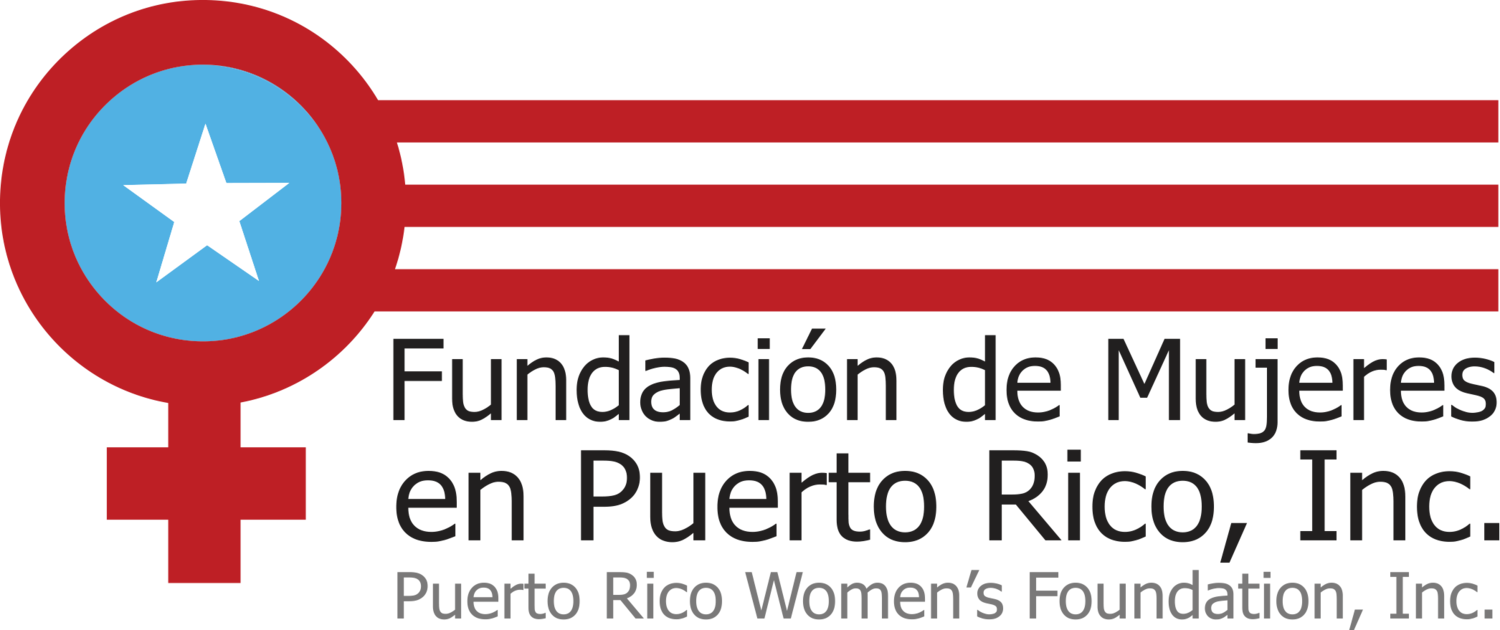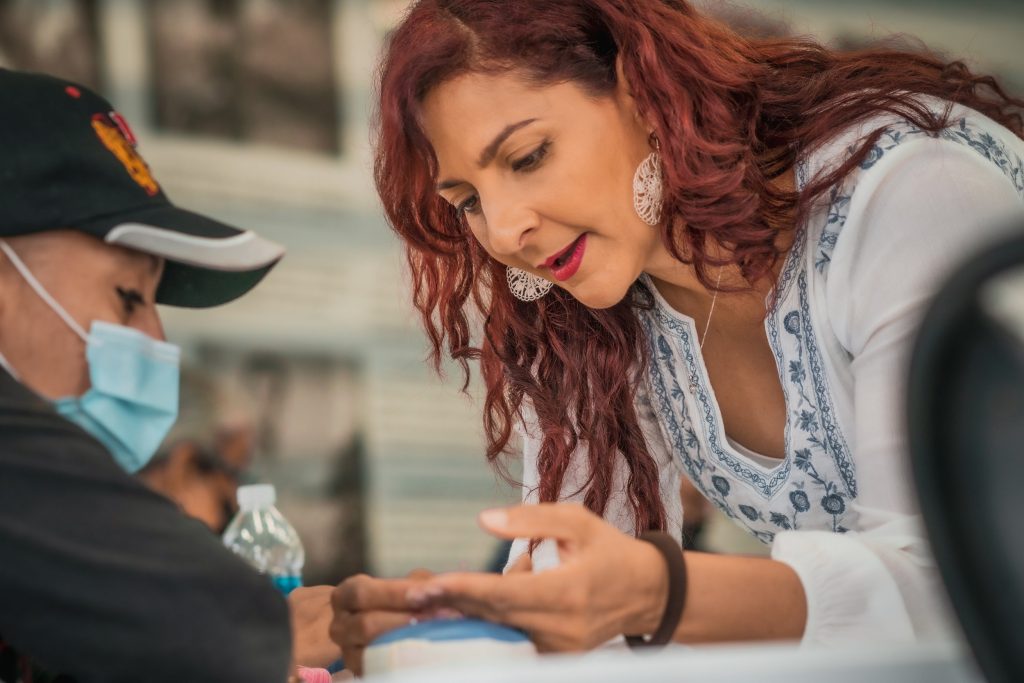The struggle against gender violence entails empathy and solidarity when providing resources and services to survivors and their families. The need to defend and ensure human rights is the driving force of organizations dedicated to this work, even when they are faced with a shortage of tools to carry it out.
A comprehensive vision and intervention, encompassing a combination of actions to ensure the survivor’s protection and recovery, as well as the restitution of her rights, will make the difference between punishment or revictimization, and empowerment, which represents a second opportunity in life.
“I have always said the state punishes women at times,” said Janice Soliván-Roig, Executive Director of Casa Juana Colón, a community project that offers services with a gender perspective, referring to the different intersectionalities that perpetuate the cycles of violence.
Soliván-Roig recognized that the issues faced by women go beyond gender violence to include issues related to mental health and access to safe and dignified housing, food security, work opportunities, and healthcare, among other essential services.
All of these are the intersectionalities that place women in situations of social inequality in rural areas, where they are ignored, Janice added.
Casa Juana Colón is a community-based organization offering services to women survivors of gender violence and their families in Comerío and nearby municipalities in rural Puerto Rico.

With a social justice perspective and based on the principles of restorative justice, Casa Juana works to promote emotional wellness and healing through art, and to support the socioeconomic empowerment of survivors. Assertive participation is encouraged in order to meet the women’s needs and promote a long-term positive effect in their lives.
Training the participants in the tools that will grant them empowerment and the ability to manage their lives during these challenging processes, is essential if we want to break the different cycles of violence.
However, providing these services requires an efficient organizational structure that can meet the growing demand for services.
Transforming lives, one step at a time
“An excellent artisan,” that’s how Janice remembers one of the participants at Casa Juana Colón.
At first, she volunteered by teaching arts and crafts to gender violence survivors, but, after a while, the team at Casa Juana realized that the volunteer was also trying to escape from an abusive relationship.
Her aggressor worked in civil defense, in a division charged with helping people in life-threatening situations, so he was knowledgeable about legal processes and had connections in different state and municipal government agencies. This allowed him to threaten and intimidate her in ways that made it impossible for her to seek help.
In an arduous process of planning and cautious action, they managed to coordinate housing services with the Hogar Ruth emergency shelter and continue the process of support and orientation for the participant.
“It showed us that we needed to work hard to meet all those needs. We realized that, although we were training women to become leaders in the struggle against domestic violence, many of them also had the same issues,” explained Janice, who understood that they didn’t have enough volunteers and that they needed to expand their services and hire more staff.
Soliván-Roig realized they could not keep up with the growing demand for services for the victims of abuse who arrived at the center from rural areas in the archipelago, such as the towns of Barranquitas, Orocovis, Aibonito, and Cayey, among others.
In 2019, she received a call from the Puerto Rico Women’s Foundation (PRWF). We asked her what the organization would need in order to obtain and manage their own resources in a sustainable way.
“So I said, ‘Well, I need administrative support’, ” Janice recalls, thinking of this as the way to begin to solidify Casa Juana Colón with recurrent funding.
She explained that, although founded in 2004, the organization had never been able to work with federal and state procedures, such as filing for a 501(c)(3) federal tax exemption, a document required to apply for grants and other administrative processes without the involvement of a fiscal sponsor. They also identified the need for unrestricted, recurrent funds to manage resources in response to the needs of their target population.
“We had to look for funding all the time and this was exhausting; it also diverted the energies we could use to focus on taking care of the participants,” Janice added.
PRWF recognized this and provided flexible funds, which are grants without use restrictions that can be assigned to either operational or programmatic needs. This allowed the organization to hire a project manager, as well as another employee, to perform administrative tasks.
Casa Juana Colón was able to begin the process of documentation to obtain the state and federal exemptions needed to submit requests for proposals, allowing them to receive their own grants. Thanks to this first step and to multi-annual funding from PRWF, they developed a strategic plan to evaluate past practices and set new goals for future sustainability.
Casa Juana Colón has grown. They now have a team of 14 staff members who are running five community projects based on the principles of restorative justice, working with educational, legal justice, and food security programs, among others, which are financed by various funding sources.
Only a few months ago, Janice had been working on a part-time basis as Executive Director during afternoons, evenings, and weekends. She is now at Casa Juana full-time thanks to a recurrent grant from PRWF.
“Being here full-time allows me to be more proactive in looking at the needs and finding the resources to meet them,” said Soliván-Roig, who is now able to manage without her job as a high-school teacher.
“The Foundation has provided the direction to help us understand that we have the ability to do more. Their support has been extremely important,” stressed Janice, in acknowledgment of the solidarity offered by PRWF and other collectives that have lent their support.
As a next step in developing their strategic plan, they plan to implement a new commercial project that will provide a stable source of income and make Casa Juana Colón self-sustainable— a tourism project named “La Ruta de Juana Colón.” Juana Colón was a labor leader who advocated for workers’ rights in the 20th century. The organization plans to develop an educational tour based on Juana Colón and Comerío. The project is scheduled to begin in January 2024. Earnings will help cover the organization’s operational needs.
In the face of multiple types of violence and structural inequalities, the income of 60% to 64% of Comerío residents is below the poverty level, according to 2020 data from the U.S. Census Bureau’s Community Survey in 2020.
For Janice, these statistics are evidenced by the daily array of services provided by Casa Juana in the areas of food distribution, educational programs, psychological and legal support, and gender violence intervention.
“Sometimes we think about how we can transform ourselves or transform lives, and it doesn’t take much. You only need to look around you to find areas where you can do simple things to offer people an opportunity in life,” Janice reflected.
For those at Casa Juana Colón, there is no doubt that operational, flexible funding support, the commitment of citizens and private entities, and the relationship of the organization with its participants are essential factors for achieving change. There is always something that can be done to transform people and their communities.

“It’s very rewarding to know that you can change lives and offer opportunities with your actions, be they big or small. I believe that people deserve to be given opportunities,” Janice concluded.

